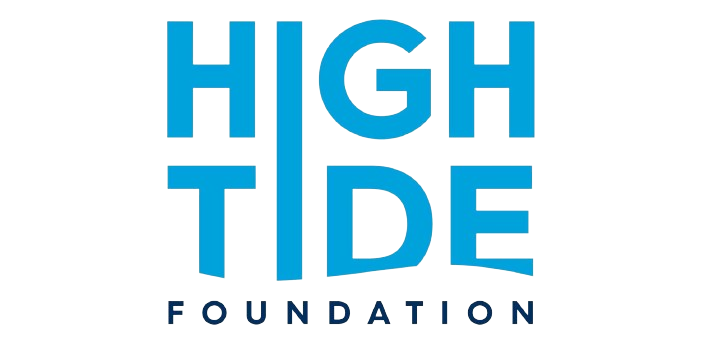In Conversation with: Annette Nazareth on the Core Carbon Principles
Written by ICVCM
Published

In this conversation with Annette Nazareth, Chair of the Integrity Council, we discuss the launch and response to the Core Carbon Principles, Assessment Framework for Programs and the Assessment Procedure.
The Chair shares how the aim of the Core Carbon Principles (CCPs) is to set a benchmark for high integrity in the carbon market, ensuring that carbon credits create real, additional and verifiable climate impact with high environmental and social integrity.
Annette answers questions about the CCPs’ ambition and highlights how the current CCPs are an inclusive and collaboratively developed starting point – and that the Integrity Council will continue to consult with stakeholders throughout the market to develop and continuously improve the CCPs over time.
Q: How has the market responded to the launch of the Core Carbon Principles (CCPs)?
The release of the CCPs has received a great response from key organizations and individuals in the voluntary carbon market and in the media.
Even so, it is important to remain focused on how much more can and will need to be done. And, it is important to acknowledge and thank those who have given enormous time and energy to this effort to contribute to addressing the significant climate challenges that threaten the planet.
The Integrity Council was established to help create a high integrity, voluntary carbon market that delivers real impact at speed and scale. This is an ambitious goal, and one that requires addressing a number of challenges facing the voluntary carbon market.
So at the end of March, after a very open, transparent and deliberative process, we launched the CCPs, the Assessment Procedure and the Program-level Assessment Framework (AF) to set a consistent global benchmark for high integrity.
These are the first in a series of releases planned for this year. And overall, I’d say that we’re feeling very positive, but by no means complacent.
But we’re not forgetting that there’s a lot of work yet to be done, and a need for urgent action. And that’s why we’ve already started on the next phases of our work.
Q: When will CCP-labelled credits be available?
As I mentioned, there is a lot of detailed and complex work already underway. Teams are currently working to ensure that CCP-Eligible programs will be able to use the CCP label on credits from CCP-Approved categories before the end of the year.
At the end of March we launched the CCPs; the Assessment Procedure that will be followed to introduce them to the market; and the Program-level Assessment Framework which sets out the criteria for determining whether carbon-crediting programs are eligible to use the CCP label.
In the coming weeks, the Integrity Council will publish the Category-level Assessment Framework, which will cover how categories of carbon credits will be measured against the CCPs. We will then open applications from programs for assessment.
We expect to begin announcing CCP-Eligible programs and CCP-Approved categories later this year, enabling CCP-labelled credits to appear in the market before the end of 2023.
Q: What impact will the Core Carbon Principles (CCPs) make?
A high-integrity voluntary carbon market is one important tool that can help unlock finance for urgently needed projects to reduce and remove billions of tonnes of emissions.
Our goal with the CCPs, is to help bring about critically needed changes in the voluntary carbon market by providing a benchmark standard for high integrity.
The CCPs set out 10 fundamental principles of carbon credits that create real, additional and verifiable climate impact with high environmental and social integrity. The Assessment Frameworks set out the rigorous criteria programs and categories of carbon credits will have to meet to be approved.
Carbon credits using the CCP label will give buyers confidence that they are funding projects making a genuine impact on emissions.
Q: How do you respond to critics who have said the CCPs aren’t ambitious enough?
The goal of the CCPs is to set an achievable benchmark that will create a high-integrity voluntary carbon market (VCM), built on trust, that will help unlock finance for urgently needed projects to reduce and remove billions of tonnes of emissions. They will ensure that good practice is implemented consistently across the market and they introduce significant new requirements.
The CCPs raise the bar on disclosure, by requiring programs to publish comprehensive information in an accessible form so that anyone who is interested can see how projects issuing CCP-labelled credits have calculated their impact on emissions, society and the environment.
They also break new ground by requiring programs to ensure high-integrity credits come from projects with robust social and environmental safeguards that deliver positive sustainable development impacts.
It is widely acknowledged that the CCPs are a significant step forward. Of course, we all know we need to and want to go further. It’s important to bear in mind that this is a start point.
The CCPs will continue to evolve and improve. And we will continue to collaborate with stakeholders throughout the market to strengthen the CCPs over time.
In the coming weeks, we will be releasing the Category-level Assessment Framework which will provide guidance around some of the most challenging questions in the market, for example those related to Additionality, Robust Quantification and Permanence.
In line with our ongoing efforts to raise the level of ambition over time, we are putting into action plans and work programs that will study complex issues and feed into the next version of the CCPs, which we expect to launch in 2025 for implementation in 2026.
These will include how to further strengthen the sustainable development requirements; whether all carbon credit projects should make a contribution to the UNFCCC (United Nations Framework Convention on Climate Change) Adaptation Fund; and the implications of Corresponding Adjustments under Article 6 of the Paris Agreement.

Q: How do you respond to critics who have said you should have taken onboard their views in developing the CCPs?
The CCPS were developed in what was intentionally a very open process. Last year, we held a two-month open consultation period, to seek feedback on a draft set of CCPs and we received more than 5,000 comments from 350 submissions, which were key to the subsequent development of the CCPs and the areas of focus.
It was a huge task, but it is critical to consult and collaborate with participants and stakeholders throughout the market to build a more widely shared, common understanding of what high integrity means for the carbon markets.
As an independent, governance body the Integrity Council is committed to transparency, and so we have published all the comments we received and shared the decision-making process which led to the documents we have just published.
And, we’re going to take a similar approach, in the next phase consulting widely, and looking to best science and practice to continuously improve our future work and iterations.
Q: Have Indigenous Peoples and Local Communities been consulted?
Our ability to limit warming to 1.5°C depends on ensuring Indigenous Peoples and Local Communities (IPs & LCs) have agency to continue managing vital ecosystem services at the local level and are included in climate and nature-based solutions affecting them. It is critical we work with IPs & LCs as partners to ensure the VCM has the necessary high-integrity frameworks to protect and promote their rights and livelihoods and to accelerate the supply of high-quality carbon credits from activities led by IPs and LCs.
Our engagement with IPs & LCs over the development of the CCPs included holding dedicated workshops and webinars, and making the consultation documents available in French, Spanish and Portuguese as well as English.
Internally, our engagement is reinforced and supported by our structure and staffing:
- Three members of our Governing Board, which reviewed and approved the process and outcomes involved in the development of the CCPs, sit in seats reserved for them as IPs & LCs members; and
- We are recruiting for two IPs & LCs Subject Matter Experts to join our Expert Panel to further strengthen the voice of this important constituency in our work. These team members will ensure IPs & LCs are actively engaged in assessing categories of credit types, including project-based and jurisdictional REDD+ and the ongoing work to strengthen the CCPs, particularly on sustainable development matters.

Q: Will the CCPs undermine rating agencies?
Not at all. On the contrary, rating agencies are a key partner in the development and growth of a high-quality VCM underpinned by integrity, transparency and scrutiny.
Our efforts are complementary. The role of the Integrity Council is to set threshold standards for high integrity. Rating agencies can provide valuable scrutiny of individual projects.
As an independent, governance body which sets threshold standards for high integrity, we welcome and value the scrutiny that rating agencies can provide.
Rating agencies were among the wide range of stakeholders who shared their knowledge and experience to help develop the CCPs, inform the assessment process, and they have a key role to play in the ongoing growth of a high quality VCM.
Q: Will the CCP criteria exclude credits from JREDD activities and other natural climate solutions?
No. We will review these categories of credits and identify those which meet the high-integrity benchmark.
In the coming weeks we will publish the Category-level Assessment Framework, setting out the criteria for assessing any category of carbon credits including project-based and jurisdictional REDD+. It will spell out how these categories of credits will be reviewed to identify those which meet the high-integrity benchmark.
ICVCM will then establish a number of specialist multi-stakeholder working groups to assess particular sectors and categories of credits, starting with those with the largest market share.
While we can’t pre-empt decisions that relate to JREDD and other natural climate solutions, we can reiterate that the role of the CCPs is to make it easier for buyers to identify and purchase high-quality carbon credits.
Q: Will CORSIA (Carbon Offsetting and Reduction Scheme for International Aviation) credits be eligible by default?
No. It’s important to understand that that only CCP-Eligible programs will be able to use the CCP label, and then only on credits from CCP-Approved categories.
Programs which have been approved by CORSIA will have a streamlined application process, but they will be required to provide evidence that they meet additional high-integrity criteria around effective governance, credit tracking, transparency and robust, independent third-party validation and verification.
The Category-level Assessment Framework, which sets out the criteria for assessing categories of carbon credits will be published in the coming weeks. While we can’t pre-empt decisions on how these will relate to CORSIA requirements.








